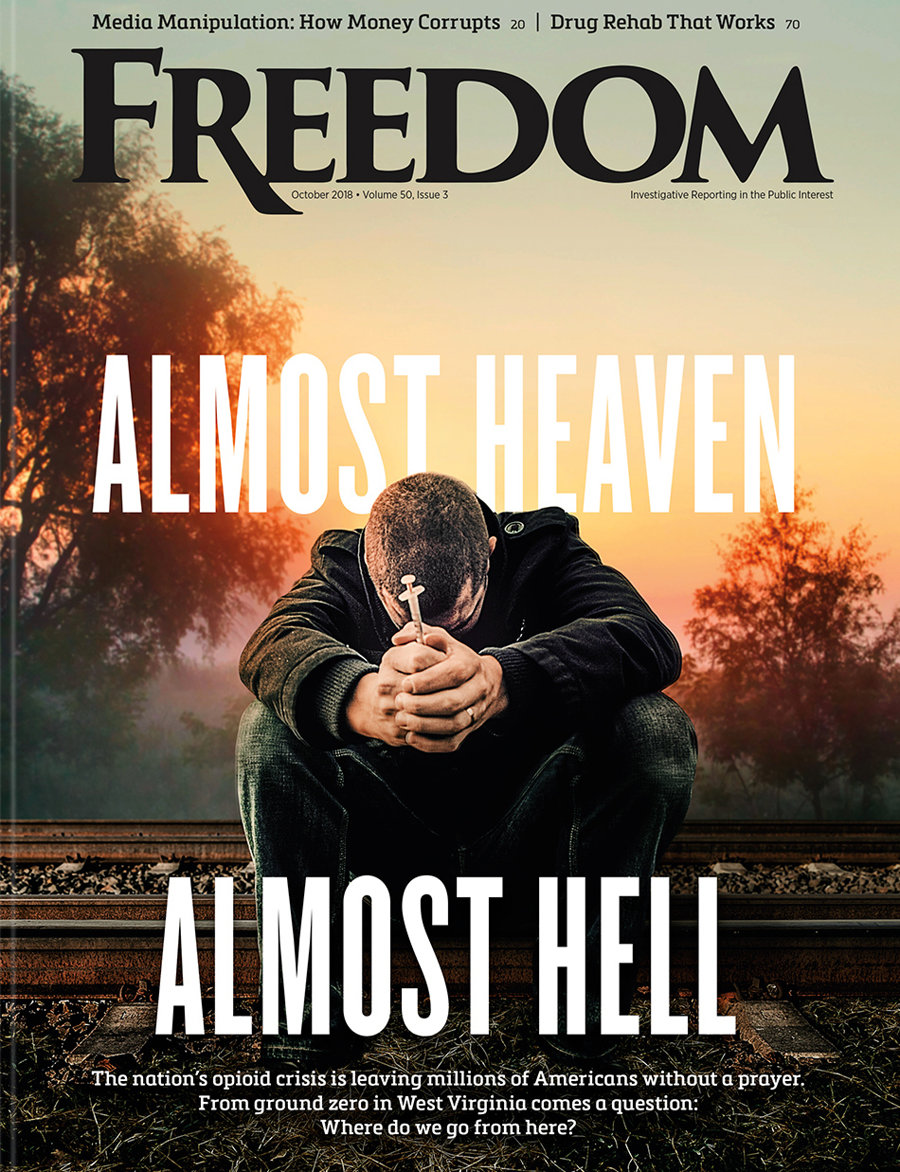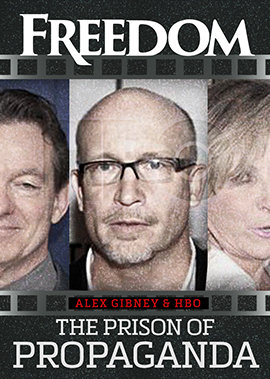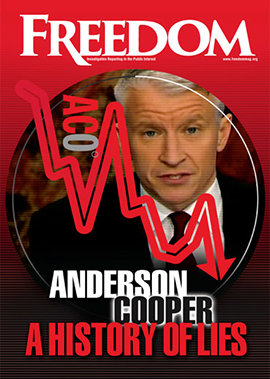No problem, the Hollywood and Big Pharma cheerleaders say, just get a weekly shot of the new, amazing anti-diabetes “wonder drug” Ozempic, and that excess weight will slide off like dewdrops from a blade of grass.
And you can even keep right on stuffing yourself with all those high-calorie foods you love—pizza, ice cream, butter—and still lose the weight.
Sounds too good to be true, right?
In fact, according to a prominent whistleblower who spent the bulk of his career working for the pharmacy and fast-food industries, if you believe that hype, you’ve just fallen victim to one of Big Pharma’s latest—and largest—scams: a multibillion-dollar con game major drugmakers and their peddlers are banking on to put them at the top of the financial universe.
And endangering the health of millions of overweight Americans in the process.

Calley Means, co-author of the new book Good Energy and founder of TrueMed—an organization promoting prevention rather than treatment in the pursuit of good health—says Big Pharma and the junk food industry are conspiring to make sick Americans even sicker in order to tap into staggering amounts of money.
According to Harvard’s T.H. Chan School of Public Health, nearly half of Americans suffer obesity. That epidemic makes us an easy target for a celebrity-driven weight-loss pitch. Everyone from Oprah Winfrey to Elon Musk and even WeightWatchers praise Ozempic and sister drug Wegovy for easy, painless weight loss.
But not so fast.
Some 96 million Americans—or one in three US adults—have prediabetes. Prediabetes means that your blood sugar levels are higher than normal, and full-blown diabetes is just around the corner. Means notes that 33 percent of young adults are also prediabetic today. Eating well and exercising can turn your prediabetes around but Big Pharma’s “answer” is to just take a simple shot every week—you’ll still lose weight, they say.
“There’s an incentive for every obesity doctor in the country to prescribe this to 80 percent of American adults and 50 percent of teens.”
The advice is not only foolish, it’s dangerous: The junk you eat—sugary foods and sodas, greasy fries and burgers—in combination with a sedentary lifestyle will still have serious negative effects on your body, no matter how slim you look.
Because of these kinds of poor eating habits, Means says, “life expectancy is falling and Americans are exponentially getting sicker, fatter, more infertile and more depressed.”
Diabetes, he explains, “is cellular dysfunction totally caused by environmental factors and what we’re eating.”
In other words, Ozempic is the wrong way to handle your weight game. What makes sense is to eat right, hit the gym, get proper sleep and be healthy, according to Means.
But Big Pharma doesn’t make money that way. Instead, they wave a tempting little injection in front of people, telling them that Ozempic can let them drop 15 percent of their body weight and take inches off their waistline, painlessly.
The appeal is nearly irresistible.
But even Ozempic’s manufacturer admits the drug may cause nausea, diarrhea, stomach pain and vomiting, and possible thyroid tumors, including cancer.
Means notes that Ozempic has also been shown to cause stomach paralysis and even suicidal ideation. He added that there are lawsuits being filed by “people with severe gastrointestinal issues after coming off the drug.”
Does Big Pharma care? Costs of these designer weight loss drugs can run to $15,000 per patient per year. Multiply that by the millions of people Big Pharma hopes to see using the drugs, and it’s easy to understand why they’re splurging millions of dollars on doctors, researchers and drug marketers to promote Ozempic.
How popular is it? In just the last three months of 2022, prescriptions for Ozempic, Wegovy and similar drugs hit 9 million, and surged 300 percent between 2020 and 2022.
Diabetes and weight loss drugs are Novo Nordisk’s bread and butter. The Danish pharmaceutical company made $13.9 billion from Ozempic sales in 2023. Its CEO, Lars Fruergaard Jørgensen, raked in $9.9 million for the year.
“There’s an incentive for every obesity doctor in the country to prescribe this to 80 percent of American adults and 50 percent of teens,” Means says. “We have much more than 50 million obese people—50 million is well over a trillion dollars a year.”
Like Ozempic, Wegovy has serious side effects. It may cause pancreas inflammation, gallbladder issues, low blood sugar, kidney problems, allergic reactions, vision problems, thoughts of suicide, depression and increased heart rate. Wegovy ads state, “You may have attempted to lose weight and keep it off many times in the past. The ups and downs can certainly be difficult, but you may finally be able to lose weight and keep it off with the help of Wegovy.”
Of course, you could also lose your life.
Though Wegovy is FDA-approved for weight loss, Ozempic isn’t. But it’s being marketed and prescribed for weight loss anyway. Novo Nordisk hopes to obtain Medicare funding for both drugs, which would open wide government coffers for drug company pillaging—and make Americans pay to make Americans sicker.
With Big Pharma and the food industry influencing media, doctors, medical schools, celebrities and healthcare associations—all in a blatant lobbying attempt to turn Ozempic into the new “wonder drug” and fatten drug company bank accounts—the fix is in, across the board, Means says.
“It’s corruption at the end of the day, which is profiting off destroying our kids and profiting on us being sicker and addicted and depressed,” he says.
“If you have a dirty fish tank, you clean the tank, you don’t drug the fish.”






















